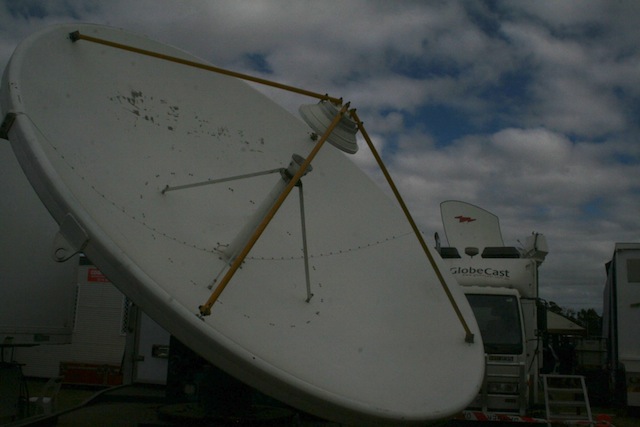It’s tough being in export markets, particularly high tech ones were government supported industries are competing with each other with taxpayer funded and subsidies and guarantees.
A great example of this is the story of Australia’s Newsat, a company formed to launch the country’s first privately owned satellite.
The satellite business is tough industry with high costs, substantial risks and a number of state backed organisations competing for work.
So Newsat found willing partners – dare one call them distressed investors – who were prepared to put taxpayers’ money on the line to get a slice of the project. In Newsat’s case the US Exim bank and France’s Compagnie Française d’Assurance pour le Commerce Extérieur (COFACE).
Together the French and US agencies tipped in just short of four hundred million US Dollars, with Exim tipping in $280 million as a direct loan to support the company’s choice of American contractor Lockheed Martin to build the satellites.
Exim bank has featured on this website before in the discussion about the perverse result that US airlines get subsidies from European export agencies to buy Airbuses while European Airlines get support to buy Boeings. The result is a zero sum game where the big loser is the taxpayer.
Newsat shows again the flaws in this export model; despite early optimism, particularly around the provision of lucrative communications services to remote mines in regional Australia, the company has never really looked like delivering on its promise with the stock price bouncing around 15 Australian cents and valuing the entire company at just under a hundred million Aussie dollars.
While the big losers in this scheme appear to be Australian shareholders along with the US and French taxpayers – the Australian government had no interest in the project and Newsat was flatly rejected as the satellite provider by the country’s National Broadband Project – it turns out the executives will do quite well from the project.
Fairfax Media’s Business Day reports the Newsat project is mired in various legal and management problems not helped by the chief executive Adrian Ballintine and investor relations manager Kahina Koucha travelling the world in first class.
Koucha accompanied Ballantine and a handful of other NewSat executives on their 2013 and 2014 global sales missions. There is no doubt the NewSat team worked very hard drumming up support for Jabiru-1. But it also appears that Ballintine and his team used company funds to travel in opulent style.
Koucha’s Instagram snapshots of the NewSat trips to New York, Washington, Paris, Dubai and London look like the setting for a clichéd, blinged-out hip hop music video. There are the first class airline cabins, luxury hotels, French champagne, a Rolex watch and lavish dinners. The NewSat crew from Melbourne were clearly the coolest in the satellite sphere.
In the past two financial years, NewSat has spent almost $1 million on travel, according to its published accounts. As Koucha wrote on one of her Instagram posts of herself relaxing in an airline’s first class cabin while on a NewSat trip: “We travel in stylllleeee (sic)”.
When the US and French taxpayers are picking up the tabs, why not live like a gangsta?
Despite the hard work of Ballantine, Koucha and the rest Newstar’s executive team, the company continues to struggle in the search for customers for it’s already launched Jabiru-2 and the Jabiru-1 project is now in jeopardy due to missed payment deadlines.
At least somebody had some first class travel and good meals out of the venture and no doubt in the scheme of things, Newsat is small beer compared to many of the export projects being funded by the US and French taxpayers.

Leave a Reply